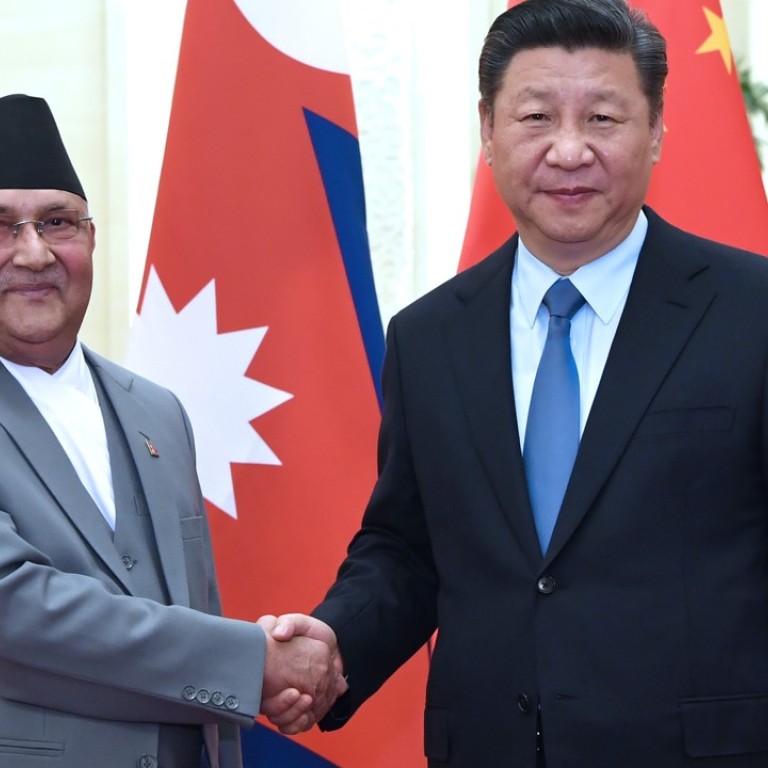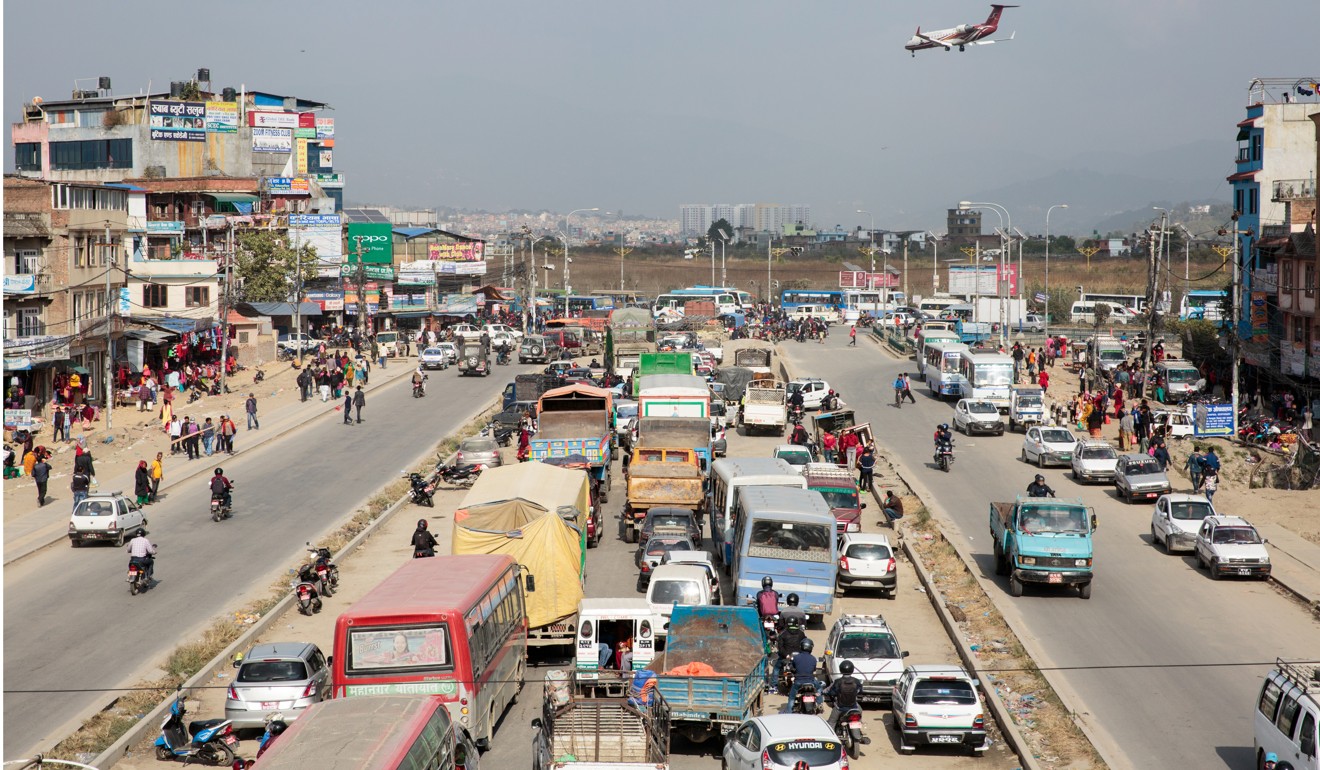
China vows to back Nepal’s ‘territorial integrity’ as two sides sign US$2.4 billion of deals
President Xi Jinping says countries are ‘facing new development opportunities’ during meeting with visiting Nepalese leader KP Sharma Oli
China has vowed to support Nepal’s efforts to maintain its “territorial integrity” as Beijing seeks to strengthen its ties with the Himalayan state and expand its influence in South Asia.
The two sides also signed eight agreements worth US$2.4 billion, ranging from hydroelectric to water resources projects, cement factories and fruit production.
During a meeting with visiting Nepalese Prime Minister KP Sharma Oli in Beijing on Wednesday, Chinese President Xi Jinping said the country would “continue to support Nepal’s efforts to safeguard state independence, sovereignty and territorial integrity”.
“Relations between China and Nepal are facing new development opportunities and the two sides should … enhance strategic communications … [and] respect and take care of each other’s core interests and concerns to boost the political foundation of bilateral ties,” Xi was quoted as saying by official news agency Xinhua.
Oli, who arrived in China on Monday for a six-day visit, said Nepal was willing to take part in the “Belt and Road Initiative” – Xi’s pet project aiming to boost trade and infrastructure links between nations from Asia to Africa.

It is Oli’s second overseas trip, after he visited India, since he returned to power in February. He took office at a time of growing uncertainty over relations between Beijing and Kathmandu, after the previous Nepalese government led by Sher Bahadur Deuba suspended a Chinese-funded dam construction deal, citing irregularities.
Analysts have said the decision to halt the deal – part of the belt and road strategy – stemmed from conflict between political factions in Nepal over their alignment with either China or India.
Oli, who is widely believed to be pro-Beijing, in February said he would restart the US$2.5 billion hydropower project and that he wanted to increase the country’s infrastructure links with China to reduce reliance on India.
But given India’s long-term influence over the landlocked nation and the deep mistrust between Beijing and New Delhi, diplomatic observers say it will be not easy for Kathmandu to balance its ties with the two regional powers.
“Relations between China and Nepal have been strained in the past few months by the decision to suspend the dam,” said Hu Zhiyong, a research fellow at the Shanghai Academy of Social Sciences. “Oli’s visit could be seen as the latest effort as the two governments try to get bilateral ties back on track from India’s influence.”
New Delhi has been watching warily as Beijing pushes ahead with its vast belt and road scheme through infrastructure investment, bringing China more diplomatic and economic engagement in South Asia, where India has traditionally held regional sway.
“So even though the Oli government wants to boost its relations with China, it won’t be easy for it to resist India’s influence,” Hu said.
Located between China and India, Nepal has long suffered from power shortages and been in talks with its two neighbours for investment to develop its hydropower industry.
When he visited Nepal last month, Indian Prime Minister Narendra Modi joined Oli to lay the foundation stone for the US$1.4 billion Arun-3 hydropower plant in the east of the country, in a move believed to be aimed at countering China’s influence in Nepal.

